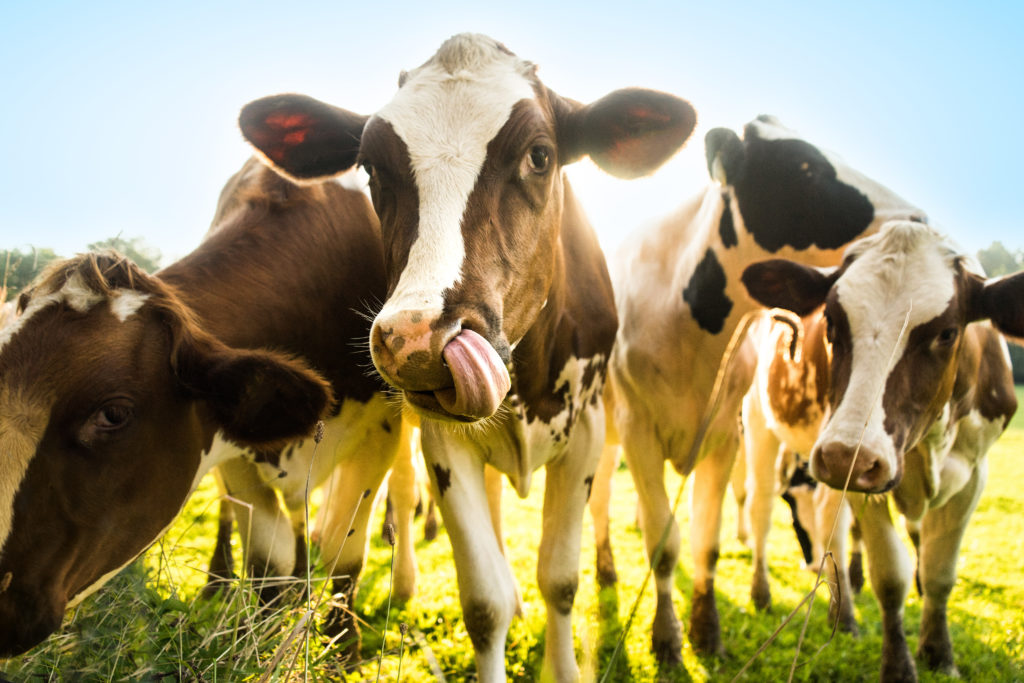
With the perpetual growth of Veganism and global environmental awareness, fast food executives are scrambling to promote a more climate friendly burger. Companies, such as McDonald’s, are searching hard for a way out of the increasingly obvious environmental damage caused by beef production.
Last month, McDonald’s announced a 5-year, $8.5 million investment in soil health enhancement with farmers in Nebraska, joining forces with Target and meat giant Cargill. Recently, Burger King hyped its search for cattle feed that it “claims” could reduce methane emissions. While pitched as genuine, it appears to be a convoluted effort that does not include reducing beef production! The problem is, cows are one of the leading drivers of climate change. Studies show the U.S., which consumes 2-3 times the global average in beef, needs to reduce up to 70% of its consumption, if we are serious about emissions reduction and animal cruelty. Reducing consumption, not just changing production, is where the newest research illustrates how best to move forward and also supports the need to transition to more plant based foods that align better with Vegan diets.
Yet, the search for climate-friendly beef persists because businesses are passing the buck on climate change and animal cruelty. Instead of supporting farmers to transition to solutions, the meat industry is trying to promote cows as carbon friendly! Weaving together creative accounting that claims the industries harming the planet are the ones saving it. This narrative is a rather feeble attempt to dissuade the public from questioning America’s enormous appetite for beef. Trying to engineer better cows, rather than eating fewer of them, is simply the wrong approach!
The danger is not only that it’s a false solution, but distracts from the real ones. Greenhouse gas production needs to be dramatically reduced. If we don’t change the way we eat, a forecast calls for diet-related emissions to increase up to 9% by 2030. The data shows that more “climate-friendly” production has an emissions reduction potential of just 10% by 2050, compared to 80% by simply consuming less red meat and dairy and eating more plant-based foods.
There is no question utilizing fewer cattle means less slaughter and reducing carbon emissions. Saving cattle also means less land is needed for feed crops, which means reduced climate disruption from land use and deforestation. Ending deforestation not only helps the climate, but also reduces water waste, pollution and habitat loss. Instead of spending time trying to engineer the perfect cow, the food industry could make genuine strides by shifting their menus toward more plant-based options.
Earlier this year, Panera announced it was moving toward 50% plant-based menus. Companies such as Carl’s Jr., White Castle and Hardee’s have also jumped on the bandwagon promoting plant-based items on their menus. But to be truly competitive in the race against climate change, they need to double down on plant-based options and scale back the high-emissions foods on their menus. Restaurants like McDonald’s should pursue sustainable options, for real, not for show. We need less beef, not “different” beef.
At Demand Wealth we share your concerns regarding protecting the environment and animals! As a result, we have developed the ‘Demand Green’ and ‘Demand Vegan’ portfolios that screen out environmentally damaging companies and those that are cruel to animals. Schedule a video conference with one of our advisors today to learn more about how we can help you invest in a way that aligns with your beliefs and achieves your financial goals.
This report is a publication of Demand Wealth. Information presented is believed to be factual and up-to-date, but we do not guarantee its accuracy and it should not be regarded as a complete analysis of the subjects discussed. All expressions of opinion reflect the judgment of the author as of the date of publication and are subject to change.
